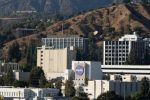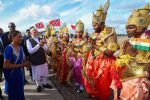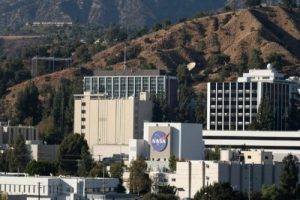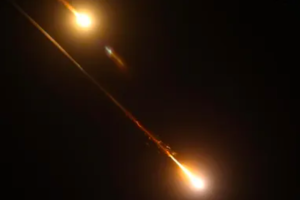For most mayors in deep-red states like Oklahoma, the prospect of hosting the first rally for President Donald Trump in months would be a delight. It would showcase the city on an international stage and draw revenue for local businesses that have been shuttered for months amid the coronavirus outbreak.
But G.T. Bynum, the first-term mayor of Tulsa, isn”t celebrating Trump”s planned rally Saturday at the city”s 19,000-seat downtown BOK Center arena. While other Oklahoma GOP officials are hailing the event, Bynum finds himself in a precarious position, balancing partisan politics, the city”s deep racial wounds and a COVID-19 infection rate that is suddenly spiking.
Trump announced the rally in Tulsa as the kick-off of a tour to rev up his political base and show the nation”s economy reopening after the long quarantine.
Trump said in a tweet that almost 1 million people have requested tickets, although party officials haven”t announced the total. Oklahoma has followed a Trump-friendly aggressive schedule for its economic reopening, ticking through a series of phases that now have almost all businesses free to resume operations.
But the announcement comes as Tulsa”s infection rate is rising steadily after remaining moderate for months. The four-day average number of new cases in the city has doubled from the previous peak in April. The city”s own health department director, Dr. Bruce Dart, has said he hopes the rally will be postponed, noting that large indoor gatherings are partially to blame for the recent spread.
Meanwhile, many leaders in the city”s black community have lashed out at Trump”s visit as provocative after the death of black Minneapolis resident George Floyd and mass protests around the world. Tulsa was the site of the nation”s deadliest race massacre in 1921, when up to 300 black residents were killed by a white mob and the city”s thriving Black Wall Street district was burned to the ground.
The massacre was covered up in subsequent years, “and I”m not sure we”ve ever really even gotten over the hump,” said state Rep. Monroe Nichols, an African American Democrat who represents the city”s largely black north side.
“I think the fact that the president is coming annoys folks in the African American community just as much as other folks in the community who don”t subscribe to his brand of politics.” Bynum has maintained an awkward balancing act — not joining Dart”s plea to postpone the rally to avert a health emergency, even though both have been strident about avoiding large groups, and not joining other Republican officials in celebrating with the popular Trump. Bynum said he would not attend the rally.
“I think he”s trying to bring people together to find that middle ground and common purpose. And that”s never going to be satisfying for the people at the ideological extremes, and they tend to be noisy,” said David Holt, the mayor of Oklahoma City and a friend of Bynum”s.
Bynum, 43, who did not respond to a request for an interview, is part of a political dynasty in Tulsa. His uncle, grandfather and great-great-grandfather all served as mayor. The city of 400,000 has long been Republican country, and he served as a staff member for GOP U.S. Sens. Don Nickles and Tom Coburn before defeating a fellow Republican in the nonpartisan mayor”s race in 2016.

























Add Comment